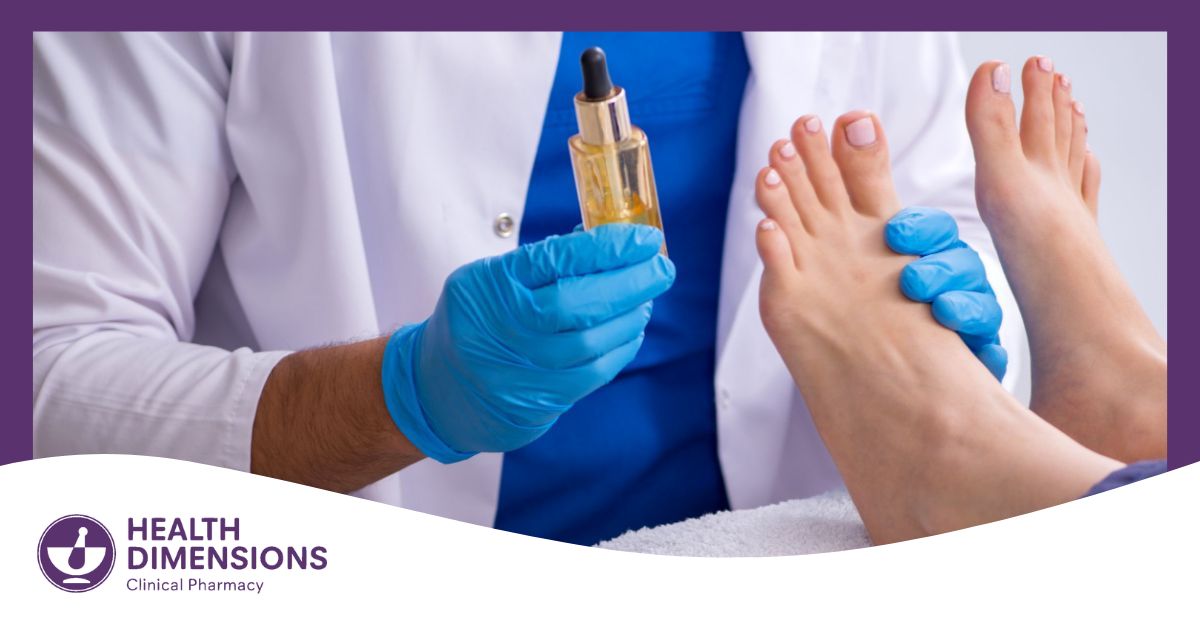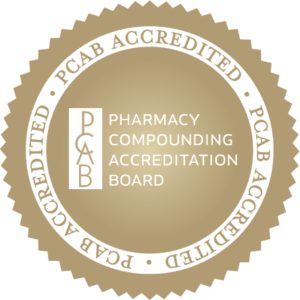Medical specialists are most often focused on one area, condition or function of the body. A podiatrist, working on feet and legs, often deal with structural issues, but also have to be able to treat skin conditions as well.
Topical ailments often need topical solutions, and that’s one of the areas where a partnership between a podiatrist and a compounding pharmacy can lead to successful treatment outcomes. Patients who have specialized needs for treatments in either unique combinations, different doses or alternative forms of delivery are well served by this partnership.
Some of the foot and leg ailments that a compounding pharmacy can help to address include:
- Fungal infections
- Arthritis or inflammatory
- Athlete’s Foot
- Skin and wound care
- Poor circulation
- Muscle spasms
With some foot issues getting the medicine through cracked, dry or just generally tough skin can make it difficult to treat. In many of those cases, over-the-counter medications or even those available through a commercial pharmacist may not be enough. A compounding pharmacist, working with a podiatrist can find the right combination of medications, and almost as importantly, pharmacists can find the best method, whether it’s a spray or gel or lotion or something else, to provide the highest chance of a successful treatment outcome.
The most common compounded medications include antifungal medications, transdermal medications for pain and inflammation, wound care medications as well as skin care compounds for foot calluses or dry skin. There are a large variety of potential combinations, potentially bringing a number of medications together in one product. As with any compounding experience, a compounding pharmacist can also make sure that the medications as prescribed do NOT contain unnecessary ingredients that might impede a patient’s ability to tolerate the treatment for the full length of treatment specified by the podiatrist.
Treatments for onychomycosis are a prime example of the pharmacy/podiatrist partnership.. Onychomycosis is a fungal infection that causes discoloration, thickening, and separation of the nail bed. While only 10 percent of all Americans suffer from it, that chance of having to deal with infection increases dramatically as patients age. Often treated with urea cream (40%), a recent study indicated the additional use of a combined solution of butenafine hydrochloride and Melaleuca alternifolia (tea tree) oil (2%/5%) combined with a cream base was 80% effective in getting rid of the infection. There are a number of nail therapies that can be effective but are only available through a compounding pharmacy. These therapies can often contain various anti-infectives that cling to the nail bed in a way that softens the nail so the anti-infective makes it to where it needs to be.
While a compounding pharmacist, working in conjunction with the podiatrist can create any number of unique solutions, there are several drugs that are more common in the creation of customized medications such as:
- Urea ointment
- Phenytoin topical
- Ketoprofen topical gel
- Ketamine/Gabapentin transdermal gel
- Itraconazole in DMSO solution
- Hydrocortisone
- Fluconazole/Ibuprofen topical gel
Regardless of the medications involved, the close partnership between a podiatrist and a compounding pharmacy provides clear examples of how this type of partnership provides breakthrough treatments for chronic and acute illnesses,
Health Dimensions Clinical Pharmacy has been providing pharmaceutical solutions to medical professionals as well as their patients since 1996. Locally owned and based in southern Michigan, Health Dimensions Clinical Pharmacy was among the nation’s first compounding pharmacies to earn accreditation by the Pharmacy Compounding Accreditation Board (PCAB) of the Accreditation for Healthcare Commission (2006). Our mission is to partner with healthcare providers to provide service excellence, accuracy, and rapid response for improved patient outcomes. To learn more about building a partnership, call Health Dimensions Clinical Pharmacy at (800) 836-2303.










